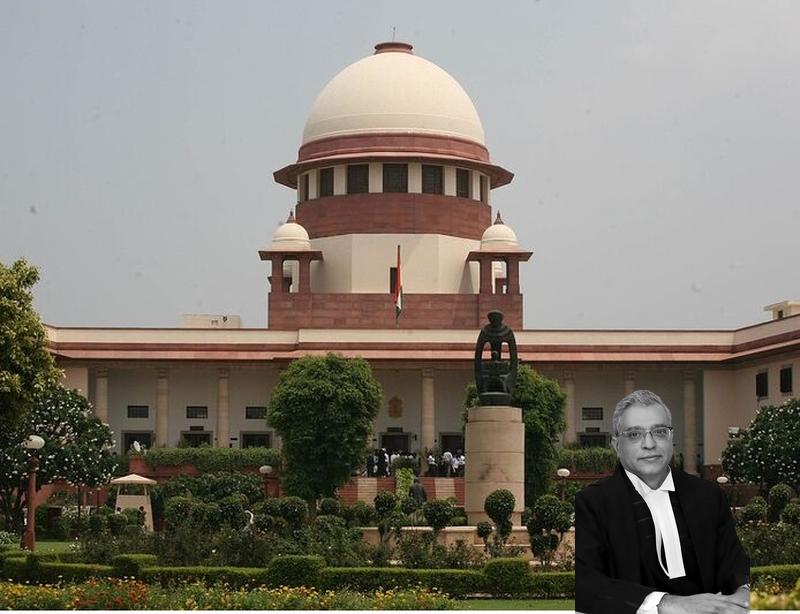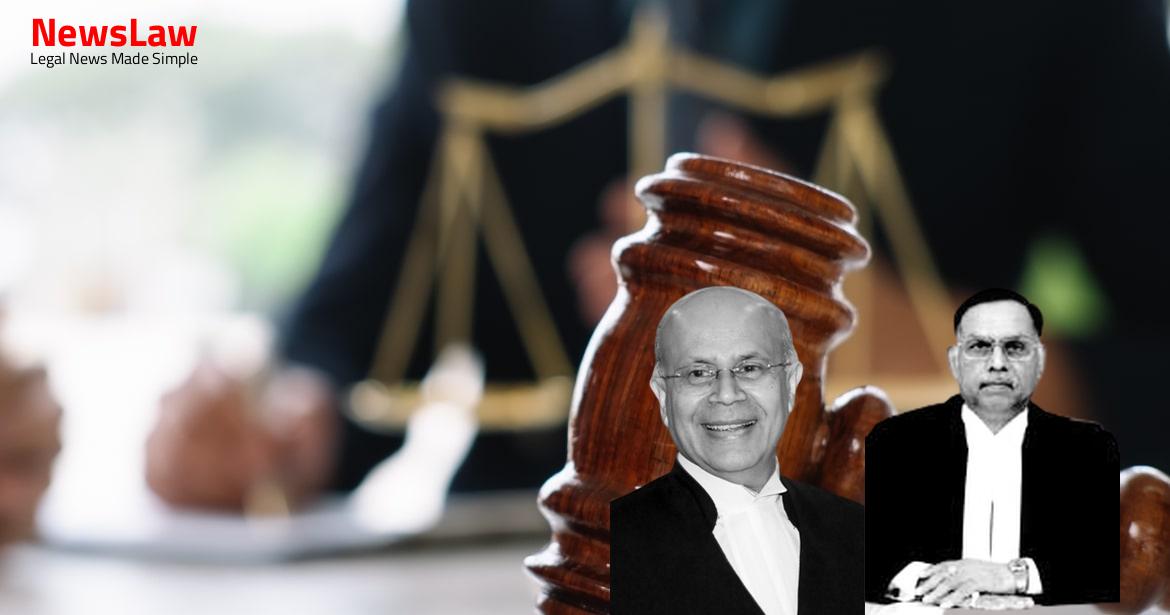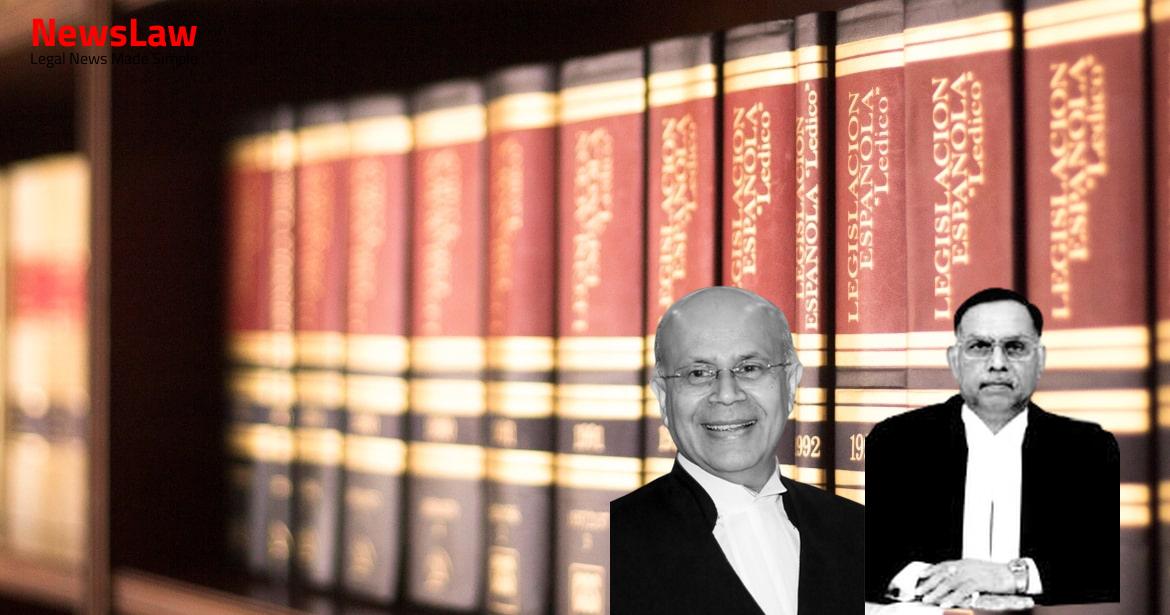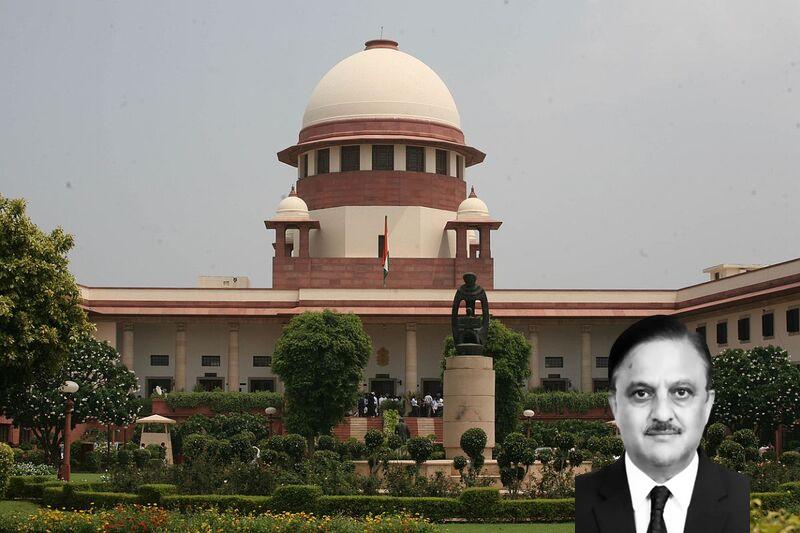This appeal arises out of the decision of the High Court of Manipur dated 11.04.2023, whereby the returned candidate’s application under Order 7 Rule 11 of the Code of Civil Procedure, 1908, to dismiss the election petition filed by the unsuccessful candidate on the ground that it lacks material particulars and is in violation of mandatory requirements of law was rejected by the High Court. In response to the election petition, the Appellant moved two applications under Order 7 Rule 11 read with Section 151 of the CPC and under Section 86 of the Act seeking dismissal of the election petition on the grounds of – (i) non-disclosure of cause of action/triable issue vis–vis the alleged corrupt practice committed by the Appellant; (ii) the absence of a concise statement 3 of facts as mandated under Section 83 of the Act; and (iii) for not serving a true self attested copy of the election petition on the returned candidate as provided under Section 81 of the Act. The High Court, therefore, concluded that there is a cause of action and triable issues; (ii) the High Court also concluded that the alleged non-compliance of Section 81(3) of the Act is incorrect as the election petitioner had effectively attested the election petition.
Devadatt Kamat, learned senior counsel appearing for the Appellant initially argued the first two grounds, namely that there is a non-disclosure of the cause of action and also that there is a 5 complete non-compliance of the requirement under Section 81(3) of the Act with respect to the attestation of the election petition.
Also Read: https://newslaw.in/supreme-court/release-of-petitioner-based-on-juvenility-plea/
He argued that the election petition must fail for not filing the additional affidavit in support of the allegation of corrupt practice. Devadatt Kamat as to how the election petition alleging corrupt practice must fail for not filling the additional affidavit, Mr. Neither the implications of Section 83(1)(c) of the Act, nor the interpretation of its proviso were taken up for consideration by the High Court.
Further, surprisingly, the High Court simply referred to the decision of this Court in Lok Prahari (supra) and rejected the submission. Order 6 Rule 15: Verification of pleadings — (1) Save as otherwise provided by any law for the time being in force, every pleading shall be verified at the foot by the party or by one of the parties pleading or by some other person proved to the satisfaction of the court to be acquainted with the facts of the case.
… to our mind, the legislative intent appears to be quite clear, since it divides violations into two classes — those violations which would entail dismissal of the election petition under Section 86(1) of the Act like non-compliance with Section 81(3) and those violations which attract Section 83(1) of the Act, i.e., non-compliance with the provisions of Section 83. The defect of the type provided in Section 83 of the Act, on the other hand, can be dealt with under the doctrine of curability, on the principles contained in the Code of Civil Procedure. On the other hand, the two-judge bench was also appraised of judgments to the contrary which held that not filing of the affidavit is a curable defect. The principal question of law raised for our consideration is whether, to maintain an election petition, it is imperative for an election petitioner to file an affidavit in terms of Order 6 Rule 15(4) of the Code of Civil Procedure, 1908 in support of the averments made in the election petition in addition to an affidavit (in a case where resort to corrupt practices have been alleged against the returned candidate) as required by the proviso to Section 83(1) of the Representation of the People Act, 1951.
Also Read: https://newslaw.in/?p=666
In addition to the verification, the person verifying the plaint is “also” required to file an affidavit in support of the pleadings. While the requirement of “also” filing an affidavit in support of the pleadings filed under CPC may be mandatory in terms of Order 6 Rule 15(4) CPC, the affidavit is not a part of the 11 verification of the pleadings—both are quite different.
The absence of an affidavit or an affidavit in a form other than the one stipulated by the Rules does not by itself cause any prejudice to the successful candidate so long as the deficiency is cured by the election petitioner by filing a proper affidavit when directed to do so.”
We have no reason to take a different view.
Prasanna Kumar, (2013) 4 SCC 776, has been cited by the learned Judge to dismiss the petition.
This was a curable defect and the learned Judge trying the election petition ought to have granted an opportunity to the appellant to file an affidavit in support of the petition in Form 25 in addition to the already existing affidavit filed with the election petition.
We are in agreement with the conclusion of the High Court that there is substantial compliance of the requirements under Section 83(1)(c) of the Act and this finding satisfies the test laid down by this Court in Siddeshwar (supra).
4179-4180 of 2023 arising out of the judgment and order of the High Court dated 11.04.2023 in MC (El.
Case Title: THANGJAM ARUNKUMAR Vs. YUMKHAM ERABOT SINGH
Case Number: C.A. No.-004179-004180 / 2023



